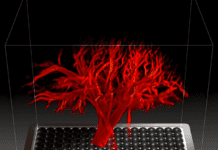
This post is also available in:
 עברית (Hebrew)
עברית (Hebrew)
In the past decade, artificial intelligence has become present in nearly every aspect of civilian and military life. The widespread use of AI and ML in various security systems, and the rapid pace of change we witness today, continue to advance military technology in an effort to add another layer of functionality – decision-making.
Military researchers are asking industry to develop artificial intelligence and machine learning technologies to handle difficult tasks like combat medical triage, which prioritizes the needs of wounded warfighters, says militaryaerospace.com.
In The Moment project (ITM) will be led by DARPA, the government agency of the U.S. Department of Defense. As requested by the agency, the project will focus on developing algorithmic decision-makers that can aid humans in difficult domains such as combat medical triage. Having trusted decision-makers disagree; no right answer exists; uncertainty, time-pressure, and limited resources contribute to creating significant decision-making challenges. In short, complex decisions are difficult to make if you must make a decision quickly.
The project is divided into two parts: treatment of small unit triage in austere environments and treatment of mass casualty triage. ITM is tackling the problem of creating, evaluating, and fielding trusted algorithmic decision-makers for mission-critical operations in which there is no right answer and, hence, no ground truth. In other words, the project will focus on basic human characteristics like trust, and attempt to transpose them into software.

























